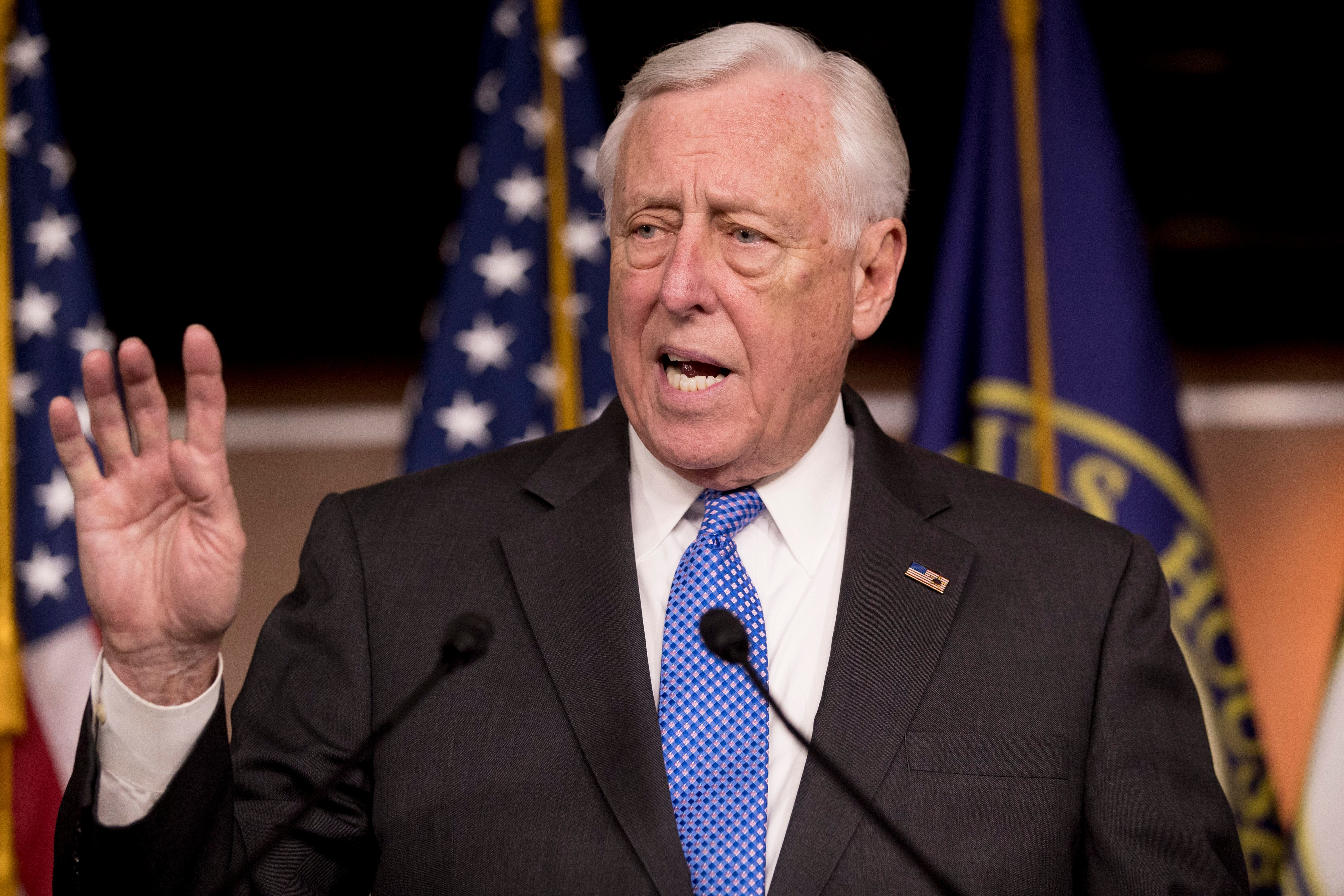WASHINGTON ― U.S. lawmakers are eyeing a short-term budget extension to prevent a partial government shutdown, despite a bipartisan agreement in July that appeared to have settled political fights over military and nondefense spending for the next fiscal year.
In a letter to House colleagues on Thursday, Majority Leader Rep. Steny Hoyer, D-Md., said Democratic leaders will introduce in the next two weeks “a clean continuing resolution to fund the government past Sept. 30.” He said the move is necessary to allow Senate lawmakers to finalize work on a host of appropriations bills.
“As we wait for them to complete their work so that we can begin conference negotiations, a continuing resolution will be necessary to prevent another government shutdown like the one we experienced earlier this year, which harmed thousands of American families,” he wrote.
It’s unclear whether the Republican-led Senate will go along with the plan. The Senate Appropriations Committee reportedly planned to begin marking up its spending bills in mid-September, and Senate Majority Leader Mitch McConnell, R-Ky., was reportedly planning to pass the bulk of federal spending from the floor before the end of the month.
Senate Republicans are hopeful they can pass Defense Department funding as part of their first package of spending bills. Lead appropriators said that group would at least include spending for the departments of Labor, Health and Human Services, and Energy to attract Democratic votes.
RELATED

Congress passed a similar budget package last fall, leaving fights over border wall spending to be sorted out later. That decision kept the Defense Department and other agencies operating through the year, but lead to a 35-day partial government shutdown at the start of the year, which furloughed thousands of federal workers and disrupted paychecks for members of the Coast Guard.
In July, both the House and Senate passed a $2.7 trillion budget deal, which included broad outlines for $738 billion in defense spending for fiscal 2020.
At the time, numerous defense hawks in Congress praised the measure as providing certainty for Pentagon planners by ensuring the military’s budget would not get caught up in multiple temporary spending bills while lawmakers quarreled over budget politics.
A $738 billion budget for the Defense Department next year would represent about a 3 percent increase in military spending from fiscal 2019 levels. Congressional Republicans argued before the budget deal that anything less than $750 billion was too low to maintain readiness and modernization priorities.
Congress must fund the government or a stopgap bill to extend current spending levels by Oct. 1 and avoid another partial government shutdown. Lawmakers return to Capitol Hill from their five-week summer recess on Sept. 9.
Hoyer didn’t specify the duration of the stopgap budget bill. If it extends to the congressional Thanksgiving recess, according to congressional aides, it could add more pressure for lawmakers to act before they leave town again.
Leo covers Congress, Veterans Affairs and the White House for Military Times. He has covered Washington, D.C. since 2004, focusing on military personnel and veterans policies. His work has earned numerous honors, including a 2009 Polk award, a 2010 National Headliner Award, the IAVA Leadership in Journalism award and the VFW News Media award.
Joe Gould was the senior Pentagon reporter for Defense News, covering the intersection of national security policy, politics and the defense industry. He had previously served as Congress reporter.





